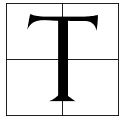Member-only story
The Scandalous History of Television Game Shows
A 1950s scandal caused the near-death of game shows
 Television viewers in countries across the globe love game shows. Some of the most successful game shows have been around for decades — Jeopardy (1964), The Price is Right (1972) and Wheel of Fortune (1975), for example. Game shows are a resiliently popular television genre, but they have a dark past. In fact, game shows were almost outlawed by the United States Congress in 1960.
Television viewers in countries across the globe love game shows. Some of the most successful game shows have been around for decades — Jeopardy (1964), The Price is Right (1972) and Wheel of Fortune (1975), for example. Game shows are a resiliently popular television genre, but they have a dark past. In fact, game shows were almost outlawed by the United States Congress in 1960.
It Started Innocently Enough
The game show, first known as the quiz show, got its start on radio in the 1930s. The earliest TV quiz show is generally acknowledged to be Spelling Bee, appearing on British television in 1938. It was a simple game in which participants were asked to spell words correctly. Truth or Consequences, first a radio quiz show, began an early run on American television in 1941. There were few TV viewers at that time, however. It wasn’t until after World War II that television viewership sky-rocketed and quiz shows reappeared as the forerunners of contemporary game shows.
One popular game show of the post-war era was Queen for a Day. This 1945 program featured housewife contestants telling their stories to a studio audience. Whoever received the loudest applause would be literally crowned…
